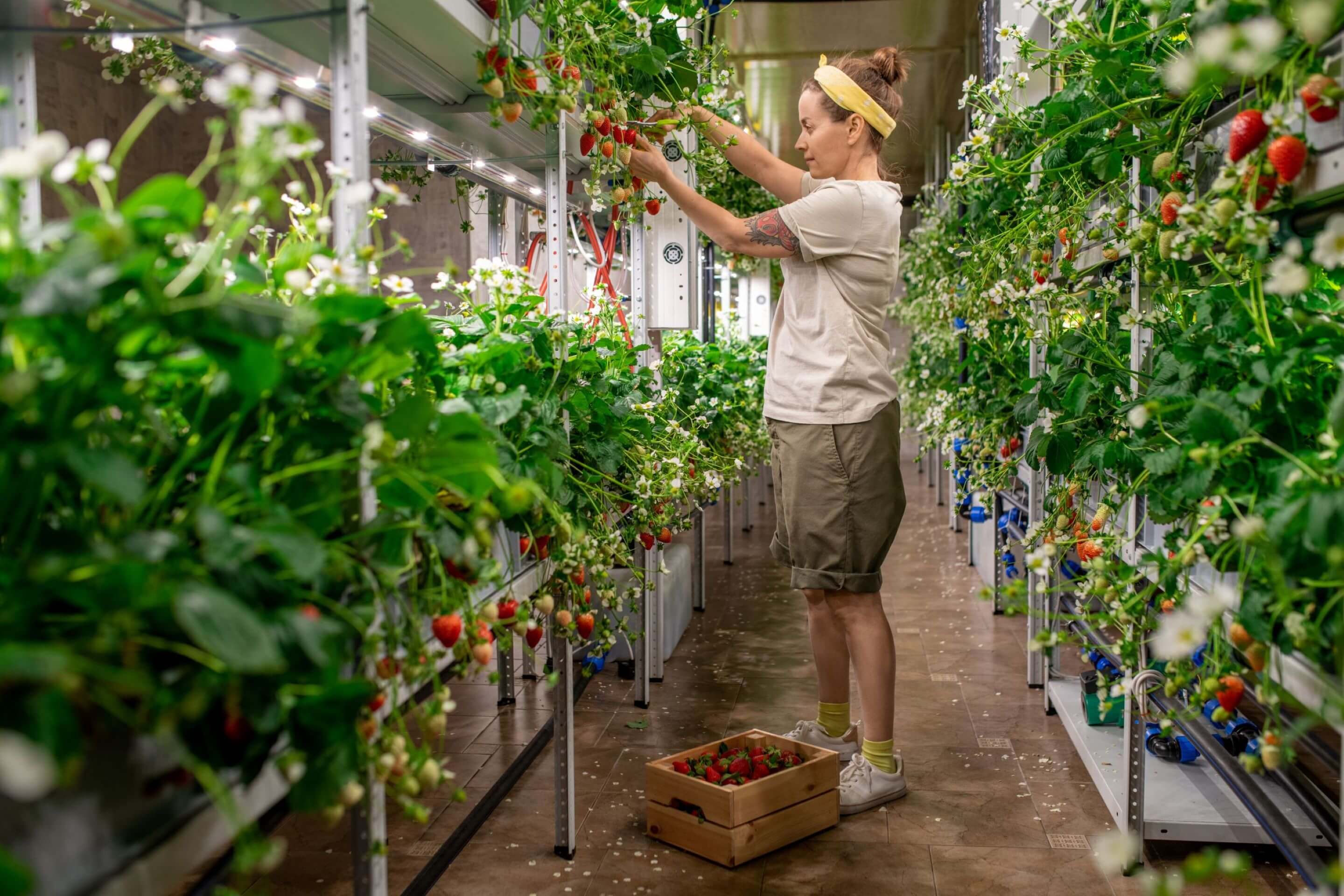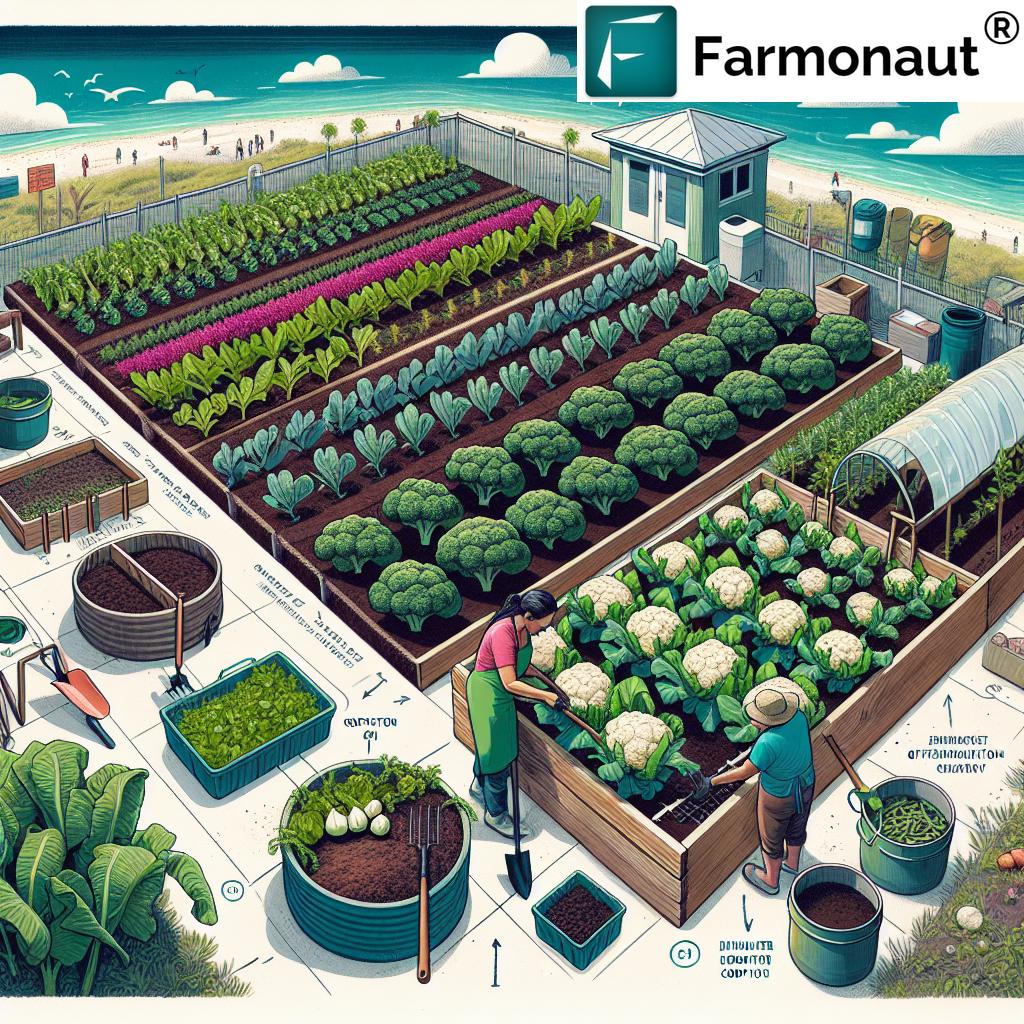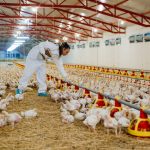Imagine turning your small balcony or rooftop into a lush, green oasis. Urban and vertical farms are making this dream possible for many city dwellers like you.
But there’s a secret to keeping these innovative gardens thriving: effective irrigation. Whether you’re just starting your urban farming journey or looking to improve your current setup, understanding the right irrigation techniques can mean the difference between a bountiful harvest and a wilting disappointment.
In this guide, you’ll discover practical irrigation tips that can transform your urban garden into a flourishing paradise. Ready to dive in and unlock the full potential of your vertical or urban farm? Let’s get started!
Choosing The Right Irrigation System
Choosing the right irrigation system is crucial for vertical and urban farms. Proper irrigation ensures plants receive the necessary water and nutrients. It helps maximize growth and maintain healthy crops. Selecting an efficient system can save time and reduce water usage. The right choice depends on farm size, crop type, and budget.
Understanding The Different Types Of Irrigation Systems
Vertical and urban farms can use various irrigation systems. Drip irrigation delivers water directly to the roots. This system reduces waste and promotes efficient absorption. Hydroponic systems use nutrient-rich water without soil. They offer precise control over water and nutrients. Aeroponic systems mist the roots with water. These systems are ideal for smaller spaces.
Assessing Your Farm’s Specific Needs
Consider the size and layout of your farm. Smaller spaces might benefit from aeroponic systems. Larger farms often prefer drip or hydroponic systems. Evaluate the types of crops you grow. Some plants need more water than others. Budget is another important factor. Some systems may have higher initial costs but lower maintenance fees.
Ensuring Efficient Water Usage
Efficient water usage is vital for sustainability. Choose systems that minimize waste. Drip irrigation systems are known for efficiency. They deliver water directly to plant roots. Hydroponic systems reuse water, reducing overall consumption. Aeroponic systems use mist, saving water and space. Always monitor and adjust water flow as needed.
Considering Maintenance And Scalability
Maintenance is key to a long-lasting irrigation system. Some systems require regular cleaning and checks. Ensure you have the resources for upkeep. Consider scalability for future growth. A scalable system can adapt to expanding farm sizes. Choose systems that offer easy upgrades and modifications.

Maximizing Water Efficiency
Water is a precious resource, especially in urban farming. Efficient use of water can significantly impact crop yield and sustainability. Vertical and urban farms require precise irrigation strategies. Let’s explore ways to maximize water efficiency.
Choose The Right Irrigation System
Drip irrigation systems save water by targeting plant roots directly. This method reduces evaporation and water waste. Hydroponic systems can also be efficient. They recycle water, which conserves resources.
Monitor Soil Moisture Levels
Use soil moisture sensors to check water levels. These sensors help avoid over-watering or under-watering. Adjust irrigation based on the sensor readings for best results.
Implement Rainwater Harvesting
Collect rainwater for irrigation purposes. This practice reduces reliance on tap water. It also helps save money and resources. Install rain barrels to gather and store rainwater efficiently.
Use Mulch To Retain Moisture
Mulch helps retain soil moisture and reduces evaporation. It keeps the soil cool and conserves water. Organic mulches like straw or wood chips work well. Apply a layer around the base of plants.
Schedule Irrigation Wisely
Water plants early in the morning or late afternoon. This timing reduces water loss due to evaporation. Avoid watering during the hottest parts of the day.
Regularly Check For Leaks
Inspect irrigation systems for leaks or clogs. Fixing these issues prevents water wastage. Ensure all components are in good condition for efficient operation.
Integrating Technology For Precision
Integrating technology ensures precise irrigation in vertical and urban farms. Smart sensors help deliver water efficiently, reducing waste. Automated systems optimize moisture levels, enhancing crop growth and sustainability.
Integrating technology into your irrigation systems is a game-changer for vertical and urban farms. Precision irrigation ensures that plants receive the exact amount of water they need, reducing waste and maximizing growth. By leveraging technology, you can tailor your watering practices to suit the unique requirements of your crops and the environment they thrive in.Using Sensors For Real-time Monitoring
Sensors are your farm’s eyes and ears. They provide real-time data on soil moisture, temperature, and humidity levels. This data helps you make informed decisions about when and how much to water your plants. Imagine walking into your farm and knowing instantly which areas need attention. It’s like having a smart assistant that keeps your plants healthy.Automated Irrigation Systems
Automated systems take the guesswork out of irrigation. These systems can be programmed to water specific areas at precise times, based on sensor data. You save time and effort, allowing you to focus on other aspects of your farm. Plus, automation reduces human error, ensuring your plants get consistent care.Mobile Apps For Remote Management
Mobile apps bring the power of irrigation management to your fingertips. You can adjust settings, monitor conditions, and receive alerts wherever you are. This flexibility means you’re never too far from your farm’s needs. It’s like having a remote control for your garden, ensuring that you’re always in touch.Data Analytics For Improved Decision Making
Data analytics provide insights into your irrigation patterns and plant responses. By analyzing trends, you can refine your strategies for better efficiency and yield. Think of it as learning from your farm’s past to improve its future. Are you using your data to its fullest potential?Energy-efficient Solutions
Modern irrigation systems often come with energy-efficient features. Solar-powered pumps and smart controllers reduce energy consumption, benefiting both your wallet and the environment. Adopting these solutions can make your farm more sustainable. How are you integrating eco-friendly practices in your irrigation setup?Customizing Irrigation For Different Crops
Different crops have varying water needs. Technology allows you to customize irrigation schedules and amounts for each crop type. This specificity ensures that each plant gets exactly what it needs, enhancing growth and productivity. Are you optimizing your irrigation practices for your diverse crop selection? These technological advancements in irrigation are not just about convenience—they’re about creating smarter, more efficient farms. By integrating these tools, you’re not just watering plants; you’re nurturing an ecosystem. Are you ready to embrace technology for precision in your urban farm?
Maintaining Optimal Plant Health
Maintaining optimal plant health in vertical and urban farms is crucial for maximizing yield and ensuring sustainability. With limited space and diverse plant needs, irrigation becomes a key factor in nurturing your green oasis. It’s not just about watering plants; it’s about understanding their unique requirements and adapting to the urban environment.
Understanding Plant Needs
Different plants have distinct water needs. Leafy greens might require frequent, light watering, whereas fruiting plants need deeper, less frequent hydration. Knowing your plants’ requirements prevents overwatering and root rot. Consider creating a simple chart to track each plant type’s specific needs.
Efficient Watering Systems
Drip irrigation systems are a great choice for vertical and urban farms. They deliver water directly to the plant roots, minimizing waste. If you’re using traditional methods, use a watering can with a long spout to target the base of the plant. This can prevent water from splashing onto leaves, reducing disease risk.
Monitoring Moisture Levels
Keeping an eye on soil moisture is essential. Invest in a moisture meter to track the water content in your soil. Alternatively, the finger test can be a simple yet effective method. Stick your finger into the soil; if it feels dry, it’s time to water. This hands-on approach can save your plants from dehydration.
Adapting To Climate Changes
Urban environments can be unpredictable. Sudden heat waves or cold spells affect plant hydration needs. Be prepared to adjust your irrigation schedule accordingly. Have you noticed how plants wilt under direct sun? Providing shade during peak hours can help maintain moisture levels.
Water Conservation Techniques
Conserving water is vital in urban farming. Collect rainwater using barrels for an eco-friendly irrigation option. Mulching can also help retain soil moisture, reducing the need for frequent watering. These practices not only save resources but also foster a sustainable farming environment.
Are you ready to take your urban farm to the next level? By understanding and implementing these irrigation tips, you can ensure your plants thrive even in the concrete jungle. What strategies have you found effective in maintaining optimal plant health?
Conclusion
Urban and vertical farms need smart irrigation. It saves time and water. Choose the right system for your crops. Drip systems work well. They target roots directly. Monitor moisture levels regularly. Use sensors for accurate readings. This helps avoid overwatering.
Adjust settings for different plants. Each has unique needs. Consider climate and weather. They affect water usage. Keep systems clean and maintained. It prevents clogs and ensures efficiency. With proper irrigation, farms thrive. Yields increase, and resources are conserved. Happy farming!



